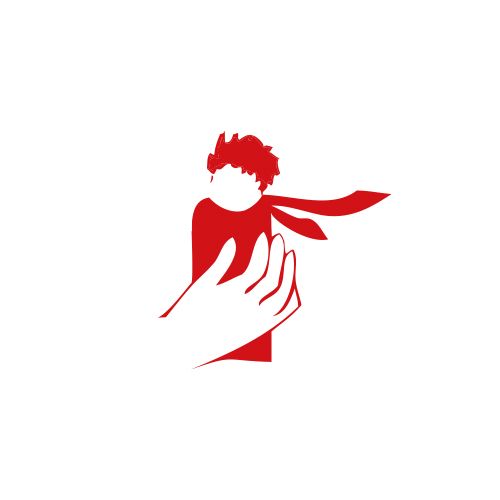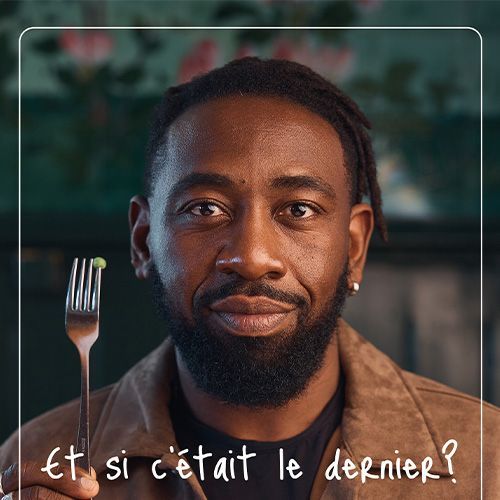Amnesty International's warning about the dangers of TikTok for young people.
Context and scope of the problem
On 21 October 2025, Amnesty International published an alarming study on the effects of TikTok France's algorithm, in collaboration with the Harris Institute. This survey follows on from an initial report published in 2023 and specifically targets the dangerous mechanisms of the ‘For You’ feed for young users. With 21.4 million active users in France, the platform reaches nearly a third of the population.
The worrying findings
Massive exposure to harmful content
The study reveals that more than 80% of young people aged 13 to 25 admit to spending too much time on social media. Half of them are regularly exposed to harmful content: promotion of idealised bodies, eating disorders and, in severe cases, incitement to suicide, depression and self-harm. The psychological impact is considerable: 58% of young people say they are affected, a figure that rises to 75% among young women aged 16 to 21.
The ‘rabbit hole’ effect: a rapid downward spiral
Amnesty International's experiment using fake accounts of 13-year-olds demonstrates the formidable effectiveness of the algorithm: in just 45 minutes, two out of three profiles receive explicit messages about suicide.
After three hours, all accounts are flooded with dark content expressing suicidal thoughts. The testimony of 17-year-old Maëllys perfectly illustrates this descent: starting with light-hearted videos, she quickly found herself trapped in a stream of depressing content that fuelled her unhappiness.
Non-existent regulation
Legal vacuum and inaction
Lawyer Laure Boutron-Marmion, who represents the Algos Victima collective (seven families whose children committed suicide between 2021 and 2023), speaks of a ‘digital Wild West’ and asserts that ‘we are at zero regulation’. Her firm now receives around 60 calls a day from parents facing similar situations.
Laws not enforced
Despite the adoption of the European DSA regulation in July 2022 and the French law of July 2023 establishing a digital age of majority at 15, these texts remain a dead letter. A study by Arcom reveals that children access social networks from the age of 12 on average, with age checks carried out in only 18% of cases.
The challenges and obstacles
Senator Mickaël Vallet highlights the complexity of the challenge: ‘We are committed to dissecting what is happening in a global organisation.’ He points to the opacity of structures and the slowness of legal procedures in the face of urgency: ‘An unprotected adolescence passes quickly.’
Measures under consideration
Amnesty International has announced that it will file a complaint with Arcom, denouncing TikTok's violations of its European obligations. Parliamentary recommendations include the creation of a digital negligence offence to make parents accountable. Emmanuel Macron has reaffirmed his desire to ban platforms for under-15s, based on an age verification system currently being tested.
Conclusion
This report paints a picture of young people who are aware of the risks (69% try to limit their exposure) but unable to protect themselves effectively, trapped by an algorithm designed to maximise engagement. Faced with sometimes fatal consequences and an explosion in reports, there is an urgent need for effective regulation, requiring both firm legal action against platforms and enhanced education for parents and young people.
Testimonial: the dangers of TikTok for young people
Excerpt from the article published on publicsenat.fr on 22/10/2025
(https://www.publicsenat.fr/actualites/ societe/incitations-au-suicide-sur-tik-tok-france-amnesty-international-saisit-larcom?at_content=photo&at_term=publicsenat&at_campaign=linkedin&at_medium=Social&at_source=nonli)
Now aged 17, Maëllys fell victim to these recommendations while she was at secondary school. ‘At first, I watched dances, Disney lip-syncs, reality TV and film scenes,’ she told Amnesty International. But very quickly, her ‘For You’ feed changed: ‘In Year 7, I started seeing sad stuff, and I quickly liked those videos because I could relate to them. Then TikTok suggested more of the same, and all the content on my feed was sad, talking about depression.’ And so the downward spiral began: ‘The more I watched, the more I found “solutions”, such as hiding places for razor blades. [...] You no longer remember how it was before, when you were fine, when you felt happy. You tell yourself that you've always been unhappy. [...] You stay there, you keep going, and it's a vicious circle.’
Full article translated
Suicide incitement on TikTok France: Amnesty International refers case to Arcom
The NGO is concerned that the Chinese social network's algorithm continues to undermine the well-being of young French people, according to a study released on Tuesday 21 October.
By Aglaée Marchand
Reading time:
8 min
Published on 22/10/2025 at 11:22
Updated on 22/10/2025 at 14:40
Following an initial report in 2023 on the consequences of personalising the ‘For You’ content feed on the health of adolescents, Amnesty International is now focusing more specifically on the French algorithm. In its survey Entrainés dans le ‘rabbit hole’ (Drawn into the rabbit hole), published on Tuesday 21 October in collaboration with the Harris Institute, the NGO deplores the increasingly worrying results in terms of young people's safety on the platform and is alarmed by TikTok France's passivity in addressing the issue.
Young people are aware, but not enough
Nearly a third of French people regularly open the app on their phones, with 21.4 million active users. Among the 13- to 25-year-olds surveyed, more than 80% admit to spending ‘too much time’ on social media. Half of them say they are often exposed to disturbing content, whether it be the promotion of idealised body types, eating disorders, or in the most serious cases, the spread of suicidal ideas and posts related to depression and self-harm. This phenomenon is detrimental to young people's mental health, with 58% saying they are affected, reporting feelings of unease, sadness and an impact on their self-esteem. This figure rises to 75% among young women aged 16 to 21.
While 69% of young people surveyed say they have tried to stop being exposed to this type of content, only one in five believe they have actually succeeded. This survey paints a picture of teenagers who are aware of the risks but, for half of them, are unaware that the ‘For You’ feed offered by the app is in fact highly personalised, based on their personal data and interests. This is a way for TikTok to ‘maximise engagement and time spent on the platform’, according to the NGO.
Suicide messages in 45 minutes
By posing as 13-year-old users on the social network via fake accounts, Amnesty International witnessed first-hand the extremely rapid mechanisms of TikTok's algorithm. After just a few hours of use, the results were alarming: within 45 minutes, the videos suggested contained explicit messages about suicide for two of the three profiles, and after three hours, ‘all accounts were flooded with dark content, sometimes directly expressing a desire to end one's life’.
This is a perfect illustration of the ‘rabbit hole’, a downward spiral effect: by looking at the posts recommended by the algorithm, initially out of curiosity or because they feel drawn to them, young people can end up trapped in them.
Now aged 17, Maëllys fell victim to these recommendations when she was at secondary school. ‘At first, I was watching dances, Disney lip-syncs, reality TV, and movie scenes,’ she explains to Amnesty International. But very quickly, her ‘For You’ feed changed: "In Year 7, I started seeing sad stuff, and I quickly liked those videos because I felt concerned. Then TikTok suggested them to me again, and all the content on my news feed was sad, talking about depression.‘ And the cycle began: ’The more I watched, the more I found “solutions”, such as hiding places for razor blades. [...] You no longer have any memories of before, when you were well, when you felt happy. You tell yourself that you've always been unhappy. [...] You stay there, you keep going, and it's a vicious circle."
‘We are at zero regulation.’
This spiral sometimes has deadly consequences. Created in 2024, the Algos Victima collective filed a lawsuit against TikTok last November in the Créteil court of law, following the suicides of two teenage girls in 2021 and 2023. Seven families, united in this collective, and their lawyer Laure Boutron-Marmion, hold the app responsible for the deterioration of their children's mental health. Since then, calls from new families have been flooding into the Paris bar lawyer's office: ‘The phone hasn't stopped ringing. I've counted around sixty parents so far,’ reports Ms Boutron-Marmion.
The proceedings are ‘ongoing’, TikTok has decided to be represented by a lawyer, and a hearing will take place ‘sometime next year’. The lawyer sees this as a ‘great victory’ for the families in the collective, who will be able to ‘get answers from a giant that has been guilty of silence for years’. This is an “unprecedented” move, because "platforms have long hidden behind the idea that the content is not theirs, and that they therefore do not have to control what is circulating .‘ However, this ’liability dispute‘ is ’quite standard,‘ says the lawyer: ’Like any corporate liability in a court of law, TikTok is no exception. By expanding in France, it is subject to French law, which is very clear on civil liability." And when the deterioration in the health of some young people occurs at ‘an alarming rate’, this can only be due to ‘the virality and use of social media’, insists Ms Boutron-Marmion, in what she considers to be ‘a digital Wild West’. For the time being, ‘we are at zero level of regulation’.
Towards a ban on platforms for under-15s?
In July 2022, the European Union adopted the Digital Services Act (DSA) with a view to harmonising the protection of individuals, including children, online. This text requires large platforms to protect minors and mitigate systemic risks when they are identified. Through its investigation, Amnesty International denounces TikTok's breaches of its obligations under European law and announces that it will file an appeal with Arcom.
Attempts to regulate followed at the French level, with the law of 7 July 2023 establishing a digital age of majority at 15. However, this has not been enforced due to uncertainty about its compliance with the European framework. A study by Arcom published in September revealed that children access social networks at an average age of 12, with age checks carried out in only 18% of cases. This summer, Emmanuel Macron reiterated his desire to ban platforms for minors under the age of 15, based on a measure announced by the European Commission that allows several countries, including France, to test an online age verification application.
‘An unprotected adolescence goes by quickly.’
In 2023, the Senate also took up the issue of TikTok's influence strategy, at the instigation of the Independents – Republic and Territories group. Chaired by Socialist Senator Mickaël Vallet, a commission recommended, among other things, the regulation of recommendation and moderation algorithms. But once again, regulation is no easy task. "We are committed to analysing what is happening in a global organisation, which also has complicated ramifications. There is a real concern about complexity, opacity, and therefore the identification of the players,‘ explains the elected representative from Charente-Maritime. He deplores the fact that ’we are stumbling over legal issues at a time when the powers that be are not bothered by this.‘ ’The procedures are long, but an unprotected adolescence passes quickly."
Presented last September, the conclusions of a parliamentary commission of inquiry ‘on the psychological effects of TikTok on minors’ led MPs to formulate some 40 recommendations, including the creation of a digital negligence offence to directly punish the failings of certain parents. This measure was welcomed by Mickaël Vallet, who believes it would ‘raise the question of when society should protect children despite their parents.’ He added: ‘The fundamental concept is also parenting education.’
Original article in french on : publicsenat.fr
Share












